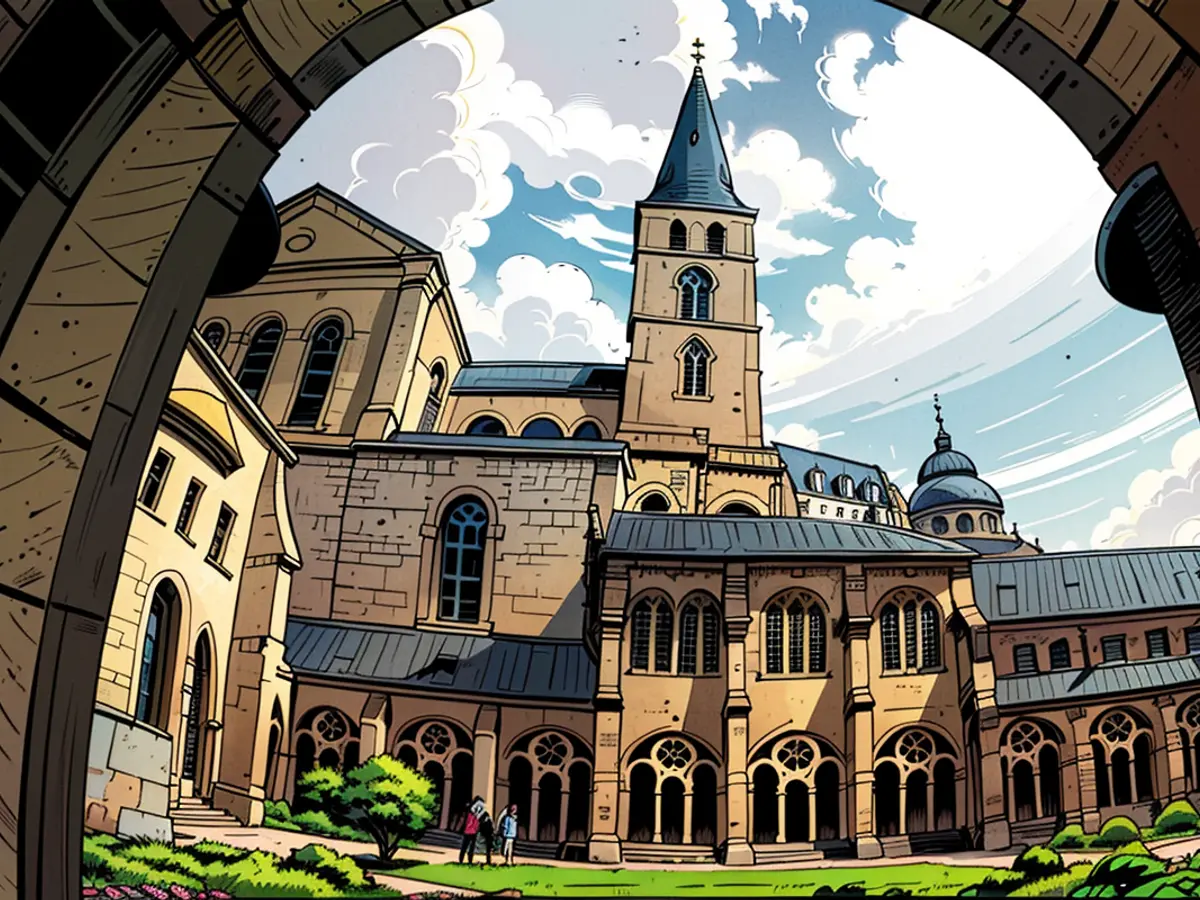Church - Report: Ex-Bishop reacted inappropriately to child abuse
Former Bishop Hermann Josef Spital of Trier is reportedly deemed to have inappropriately and mildly reacted to sexual misconduct within the Diocese of Trier during the 80s and 90s, according to historians. Spital allegedly followed up on reports of sexual misconduct but his solutions were "completely inappropriate" and driven by pastoral trust, states a report from the University of Trier.
Spital served as bishop in Trier from 1981 to 2001. During this time, at least 194 people were reportedly affected by sexual assaults by clerics and church personnel within the Diocese. Most of the victims were male, approximately 22%, were girls or young women. The historians identified 49 suspects and perpetrators in this time period. Twenty of these suspects were known to the responsible parties within the Diocese, while the other 29 were only identified after 2010.
The report is based on the analysis of over 1000 documents and 20 interviews with eyewitnesses and victims. It is the second interim report of a historical study that scientifically examines sexual abuse by clerics and laypeople in the Diocese of Trier from 1946 to 2021. So far, the Trier historians have documented incidents involving 711 victims and 234 suspects for the time period from 1946 to 2021.
At the end of 2022, the historians published a report on the tenure of the former Bishop Bernhard Stein (1967-1980). He was reportedly part of the system that shielded and protected sexual abusers. The Diocese of Trier counts approximately 1.2 million Catholics in Rhineland-Palatinate and Saarland.
"Some of the victims have been traumatized by the sexual abuse," the current report states. In the society of the 80s and 90s, there was little understanding for the psychological and physical consequences of sexual abuse for children and adolescents. "Sacristies, parsonages, priests' and pastors' homes, hotel rooms during youth camps were for them scenes of crime and many of them lost their trust in ecclesiastical authorities there."
Many of the victims only recognized themselves as victims of abuse in their middle or later adult years and informed others. They were in need of therapeutic help, wrote the author and co-author. "Children and adolescents suffered particularly heavy burdens up to lifelong damage who were abused over longer periods by priests and who were targeted and successfully made psychologically dependent by the perpetrators."
The number of cases in Spital's second term as bishop reportedly decreased compared to his predecessor's tenure. In Spital's term, there was a smaller group of repeat or intensive offenders who "had particularly many victims and who did this over longer periods of their professional lives and often also abused minors over years," according to the report. "Correspondingly great moral responsibility lies on them." So, there were 14 diocesan and religious clergy members who were responsible for the sexual misconduct of at least 148 people during this time.
Spital was not necessarily better informed but personally more involved than his predecessor Stein. He knew of at least 13 of the 20 known cases of misconduct at the time.
Consequences ensued internally, but externally there were fewer. The most frequent action taken against the accused was to transfer them or assign them to other dioceses. "This method was successful in protecting the church reputation, but in most cases ineffective in protecting other victims," the report states. Auxiliary Bishop Leo Schwarz was reportedly involved in at least nine cases. "Above all, personal relationships with accused priests seem to have impaired his judgment." He underestimated the extent and consequences of sexual abuse.
The Hospital did not actively cover up sexual abuse, but acted cautiously. It was inclined to avoid conflicts and legal proceedings and relied on the expertise of psychologists. "While there was concern for clarification internally, the moral duty to report and inform state authorities was completely neglected," write the authors. And: "The era of silence and cover-up was still far from over."
The research project at the University of Trier was initiated by the independent commission for the processing of sexual abuse in the Diocese of Trier. The historical study, which is still running until the end of 2025, will also examine the tenures of the former Trier Bishop Reinhard Marx and the current Bishop Stephan Ackermann. The reports will focus on how church officials handled known cases of abuse.
- The University of Trier, located in Trier, has conducted a historical study on sexual abuse within the Diocese of Trier, which covers both Trier and the surrounding regions of Rhineland-Palatinate and Saarland.
- Bishop Hermann Josef Spital, who served in Trier from 1981 to 2001, is criticized for his handling of sexual misconduct reports within the Diocese.
- The report states that at least 194 people were affected by sexual assaults within the Diocese during Spital's tenure, with some victims being children and young women.
- Auxiliary Bishop Leo Schwarz, who served during Spital's time, is reportedly involved in at least nine cases of misconduct, indicating a misuse of power and trust within the Diocese.
- In the 80s and 90s, society had little understanding for the psychological and physical consequences of sexual abuse on children and adolescents, making it difficult for victims to seek help and heal.
- The research project at the University of Trier will also examine the tenures of former Trier Bishops Reinhard Marx and the current Bishop Stephan Ackermann, focusing on how church officials handled known cases of abuse.








